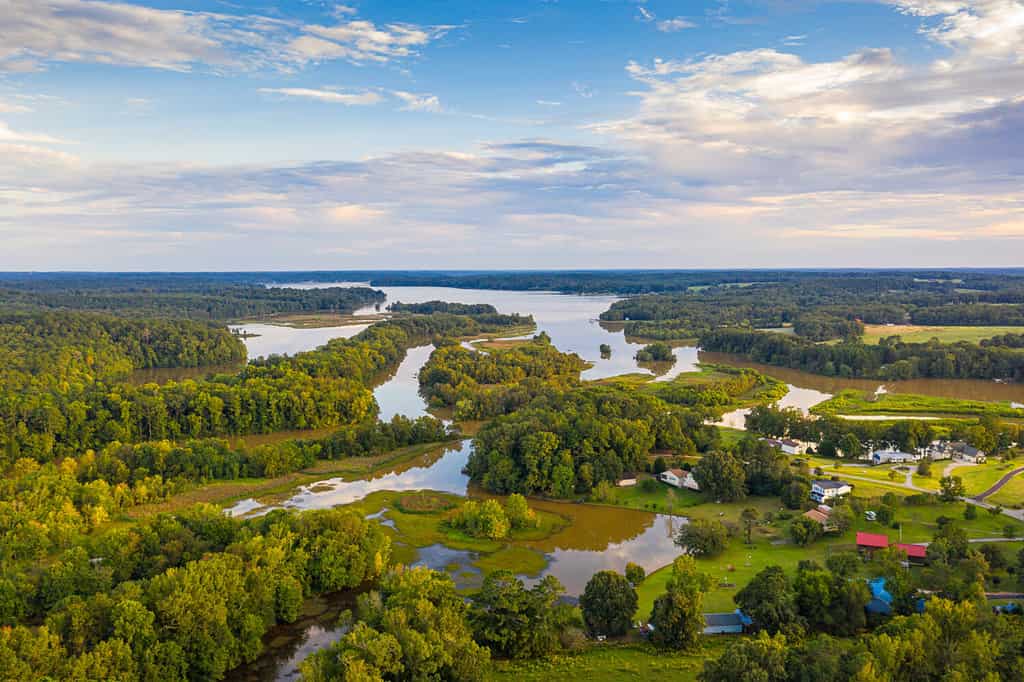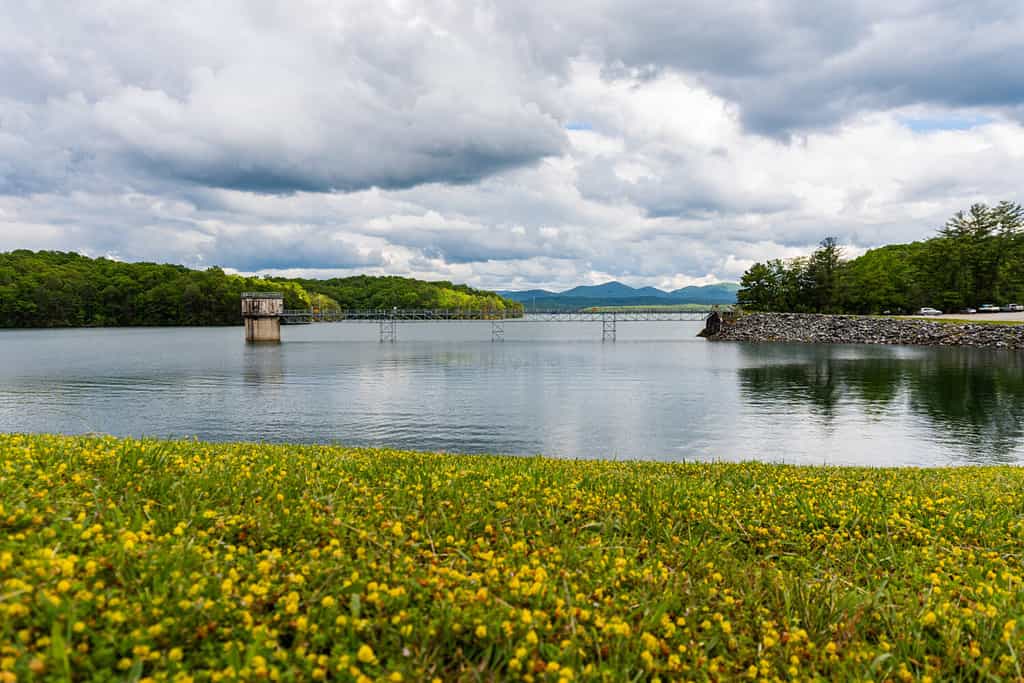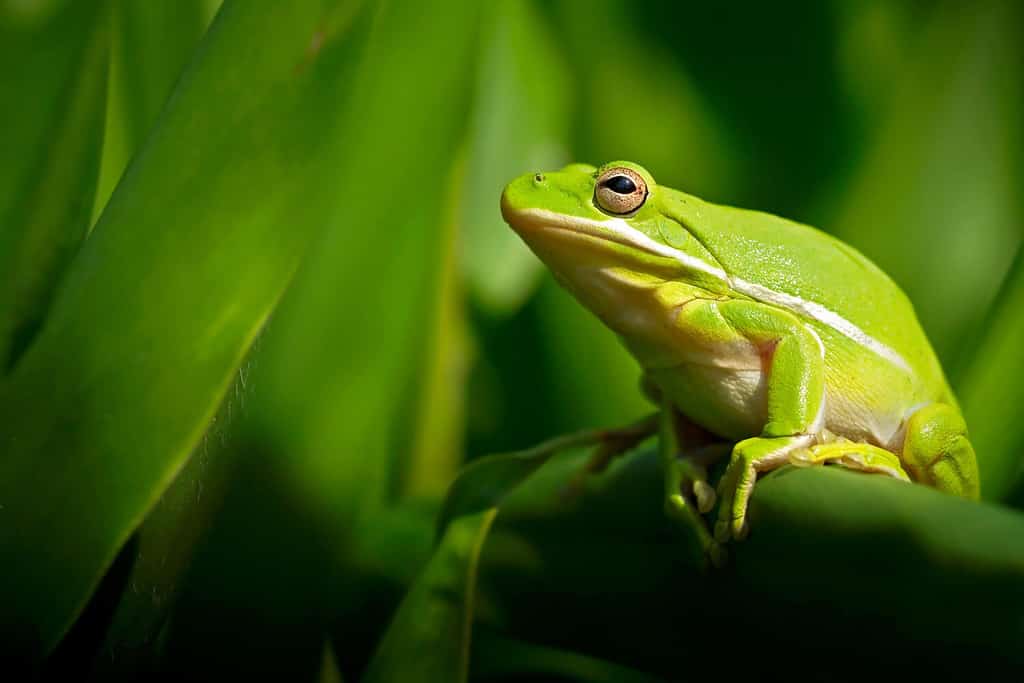Each of America’s state names can tell about its history and establishment. For instance, Georgia was named after a European leader who contributed to its creation as an official colony. Delving into the state’s name and origin can help you better understand how it became a state, who played an important role in its history, and any symbolism it might hold.
Georgia is a gorgeous Southeastern state in the U.S. that borders Tennessee, North Carolina, South Carolina, Florida, and Alabama — as well as the Atlantic Ocean. The state has various nicknames, diverse terrain, and extensive wildlife. Here’s how Georgia got its name, what it means in different cultures, and a list of all its official state animals.
How Did Georgia Get Its Name?
The state of Georgia was named after King George II of England, who signed the charter that made it a colony in 1732. King George II, whose full name was George Augustus, was the King of Great Britain and Ireland from 1727 to 1760.
Georgia was originally settled by Europeans in 1733, which is when King George gave the state its name. In fact, he established that the colony was founded by James Oglethorpe and granted the state his own name. Georgia was the last of the established 13 colonies to be founded. Eventually, the state became the fourth state in the U.S. to ratify the U.S. Constitution (and the first Southern state to do so).
Savannah, a popular city in Georgia and the first capital of the state (the current being Atlanta), was named by state founder James Oglethorpe after the Savannah River. Many believe the name for Savannah River came from the Spanish word sabana, which means “flat country.” Others assume it comes from the Sawana Indians

Georgia features 31 different lakes, making it the perfect destination for those who prefer outdoor activities like adventures like canoeing, kayaking, paddle-boarding, or tubing.
©Sean Pavone/Shutterstock.com
Georgia Meaning in Other Languages and Cultures
Different words have different meanings depending on the cultural or religious symbols and connotations attached to them. In Greek, Georgia (or “Georgios”) translates to “farmer” or “earth worker.” To break it down further, “ge” translates to “earth” and “land,” while “ergon” translates to “work.” This suits the state perfectly, as it is filled with nature and farmland. In fact, Georgia features nearly 10 million acres of operating farmland in the state.
Georgia is also considered the feminine version of the name George, which makes sense why the state was named after King George II. It shares the same meanings and interpretations as the name George.
How Did Georgia Get Its Nicknames?
Georgia has a few different nicknames, with its most popular being “The Peach State.” The state got this nickname due to its home-grown, delicious peaches — known as the best in the country. In fact, Georgia’s state fruit is the peach, which was established in 1955 and is featured in the state quarter. However, far before that, during the mid-1700s, Cherokee Indians grew peaches in Georgia. Today, Georgia produces about 35,300 tons annually and is the third biggest peach producer in the U.S. — behind California and South Carolina.
Georgia is also commonly called “The Goober State” because its state crop is the peanut (which used to be called “goober” by many Southerners). The state earned this nickname when, with the help of the state’s most famous farmer, Jimmy Carter, it became the leading U.S. state in peanut production. In fact, during the Civil War, many referred to Georgians as “goober-grabbers.”
Additionally, many refer to the southeastern state as “The Empire State of the South” due to Georgia’s industrialization, specifically the growth of its textile industry. In the 1800s, Georgia was a leader in cotton production, especially in the South.

Georgia has varied landscapes and terrains, providing beautiful and diverse scenery throughout the entire state.
©KevinYOLO/Shutterstock.com
Wildlife in Georgia
With its varied landscapes and habitats, ranging from mountains and ridges to flat coastal plains and beaches, the state boasts many different species. In fact, Georgia has 13 official state animals:
- Amphibian: Green Tree Frog
- Bird: Brown Thrasher
- Butterfly: Eastern Tiger Swallowtail
- Cold Water Game Fish: Southern Appalachian Brook Trout
- Dog: Adoptable Dog
- Fish: Largemouth Bass
- Game Bird: Bobwhite Quail
- Insect: Honey Bee
- Marine Mammal: North Atlantic Right Whale
- Mammal: White-Tailed Deer
- Reptile: Gopher Tortoise
- Saltwater Fish: Red Drum
- Seashell: Knobbed Whelk

The Green
Tree Frog
is one of Georgia’s 13 state animals.
©LorraineHudgins/Shutterstock.com
Throughout the state of Georgia, you can find many types of wildlife. Depending on which part of Georgia you’re visiting, from the swampy sections to the coastal beaches, you might spot American alligators, river otters, beavers, sea turtles, raccoons, foxes, weasels, black bears, coyotes, Florida Pine snakes, cottonmouth snakes, fox squirrels, wild turkeys, rabbits, bobcats, gray foxes, woodchucks, lizards, salamanders, seagulls, dolphins, and more.
The photo featured at the top of this post is © Sean Pavone/Shutterstock.com
Thank you for reading! Have some feedback for us? Contact the AZ Animals editorial team.






